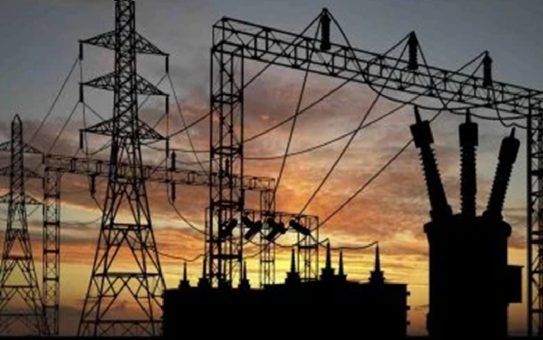EDUCATION
FG to equip 12 universities with high-fibre internet, 24-hour electricity
FG to equip 12 universities with high-fibre internet, 24-hour electricity

No fewer than twelve federal universities will benefit from high-fibre digital infrastructure before the end of the year, Minister of Communications, Innovation, and Digital Economy Dr. Bosun Tijani announced on Wednesday.
In addition, some Nigerian universities are set to begin enjoying 24-hour electricity supply to enhance teaching, research, and learning on campuses, according to the Minister of Education, Dr. Maruf Alausa.
Dr. Tijani disclosed this at the commissioning of a High-Fibre Digital Facility at the University of Abuja’s old Boys Hostel. He said the initiative aims to equip students with digital skills and access needed to explore emerging opportunities in the global tech ecosystem before graduation.
Citing examples of young Nigerians who have successfully built billion-dollar online payment firms, Dr. Tijani urged students to leverage the digital infrastructure being provided by the current administration to develop themselves and build a future in tech.
The project is a collaboration between the federal government, Galaxy Backbone Nigeria Ltd, Huawei Technologies Nigeria, and other tech firms. It will deliver free Wi-Fi services across campuses, serving as a digital equalizer for students.
Present at the inauguration were the Director-General of the National Information Technology Development Agency (NITDA), Kashifu Inuwa; the National Commissioner for the Nigeria Data Protection Commission, Dr. Vincent Olatunji; the Managing Director of NigComSat, Mrs. Jane Egerton-Idehen; and the Postmaster General of the Federation, Mrs. Tola Odeyemi.
Also the Vice chancellor of the University of Abuja, Prof Patricia Lar and the institution’s Registrar and the Managing Director of Huawei Technologies Nigeria, Mr Teorens Wu attended the event.
Dr Tijani further said digital inclusion was necessary especially for the students to navigate contemporary challenges and become successful in the digital space without waiting for white collar jobs on graduation.
He said the University was the first of the seven universities for the first phase of the pilot scheme. And that by the end of June, they would have connected the seven universities for the first phase.
“This initiative we are launching here today is the first of the seven in a pilot scheme, and by the end of July, we will have connected the seven universities”, he said.
“Galaxy Backbone has the infrastructure in place already; all we are doing is to take the fibre to hostels,” the Minister added.
“Your challenge today is what you do with the knowledge that you’re being given. And this is why to actualise the dream of our president, we’ve taught it to be important that Nigerian university students cannot continue to learn without access to meaningful connectivity.
“It is unacceptable because we know when we give you this access that not only are you going to be better in what you’re learning, but you’re actually going to create the future that our president is asking that we create as a nation”, Dr Tijani said.
Dr. Alausa, on his part, noted that the University was a special institution selected by the government to enjoy a 24-hour power supply. And that other special institutions will enjoy 24hrs power before the end of 2026.
“The president is energising institutions. We have special institutions in the country today enjoying 24-hour electricity via the presidential renewable mini-grid project, the solarisation project.
“The University of Abuja is one of the beneficiaries. You have a 3.3 megahertz mini-grid here and everybody can attest to it now that you have a 24-hour electricity supply.
“The president is not stopping there. Before the end of next year, all the special institutions will have a mini-grid. You will all enjoy a 24-hour electricity supply, “Dr Alausa said.
The Acting Vice Chancellor, University of Abuja, Prof. Patricia Lar in her welcome address described the project as a laudable one that would benefit the school community.
“It’s a special initiative that’s going to create opportunities for students of all economic status to access data to be able to use for knowledge and education, and to feed their creativity with ease.
“We are grateful for deploying fibre to our hostels. This also works with the solar power backup that has been installed in our campus,” she said.
Discover more from 9jaPolyTv
Subscribe to get the latest posts sent to your email.

 EDUCATION2 hours ago
EDUCATION2 hours agoApply Now: SMEDAN ₦50,000 Conditional Grant Scheme for Micro Enterprises 2025

 EDUCATION2 hours ago
EDUCATION2 hours agoUniversity of Calabar joins beneficiaries of OPay’s N1.2bn 10-year scholarship programme

 EDUCATION2 hours ago
EDUCATION2 hours agoMeet the Deeper Life High School Students Who Scored Above 350 in UTME 2025

 EDUCATION2 hours ago
EDUCATION2 hours agoWhat International Students Should Know Before Studying in the U.S. in 2025

 EDUCATION1 hour ago
EDUCATION1 hour agoProfessor Selling Vegetables Urges Youths to Embrace Small Businesses

 EDUCATION2 hours ago
EDUCATION2 hours agoTY Danjuma MBA Scholarship 2025: Financial Support for African Students at Top Global Business Schools

 EDUCATION1 hour ago
EDUCATION1 hour agoFG begins implementation of degree programmes in Colleges of Education

 EDUCATION2 hours ago
EDUCATION2 hours agoKAPSARC Postdoctoral Program 2025/26 in Saudi Arabia (Fully Funded)


























